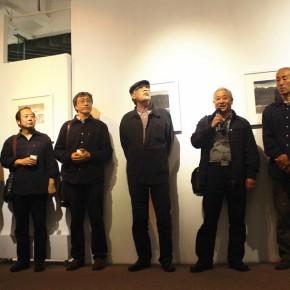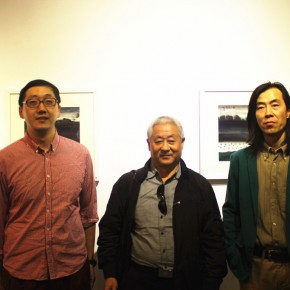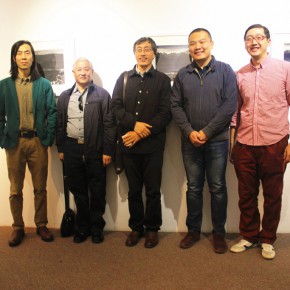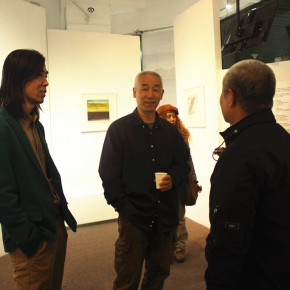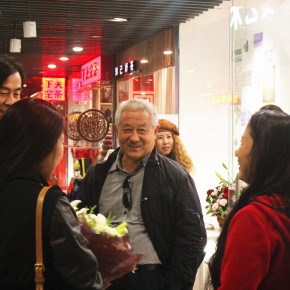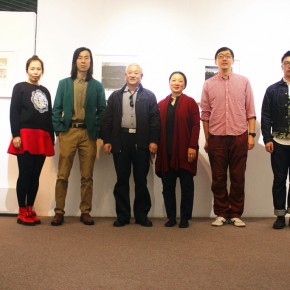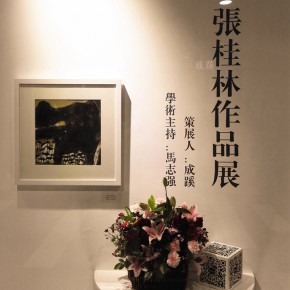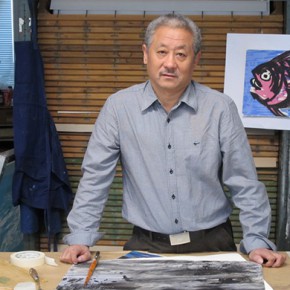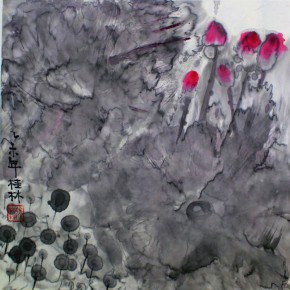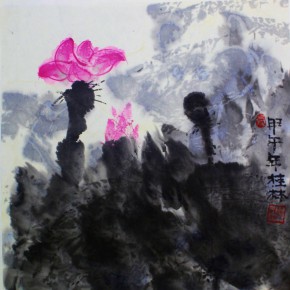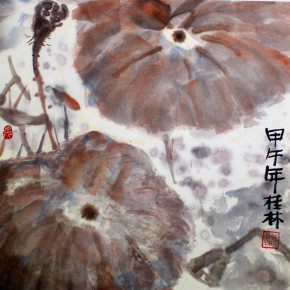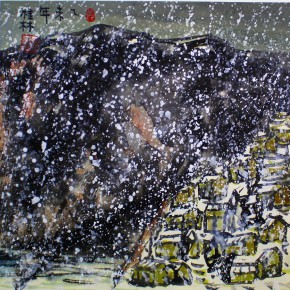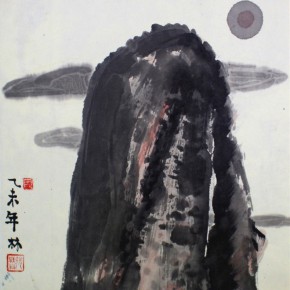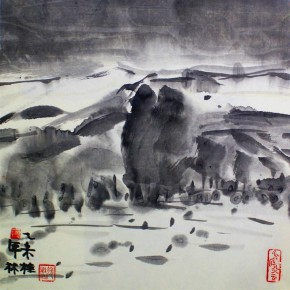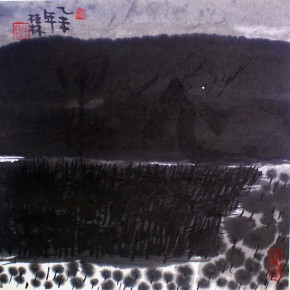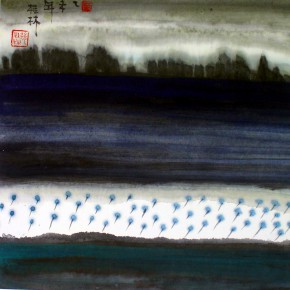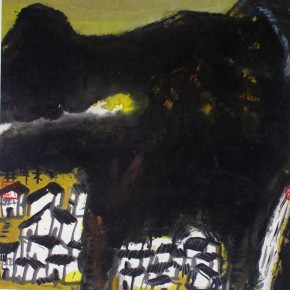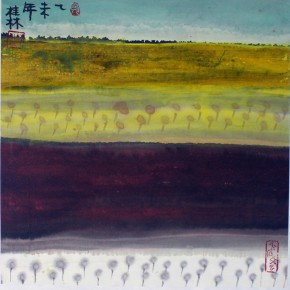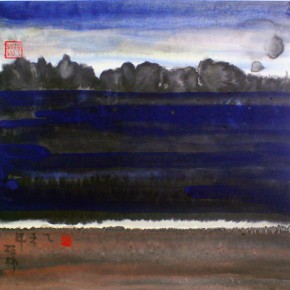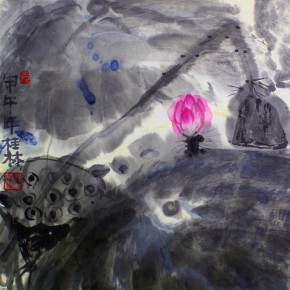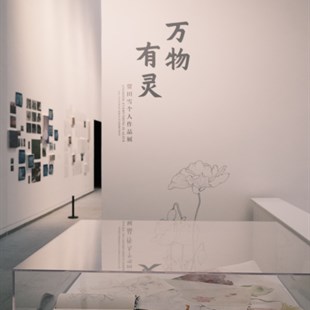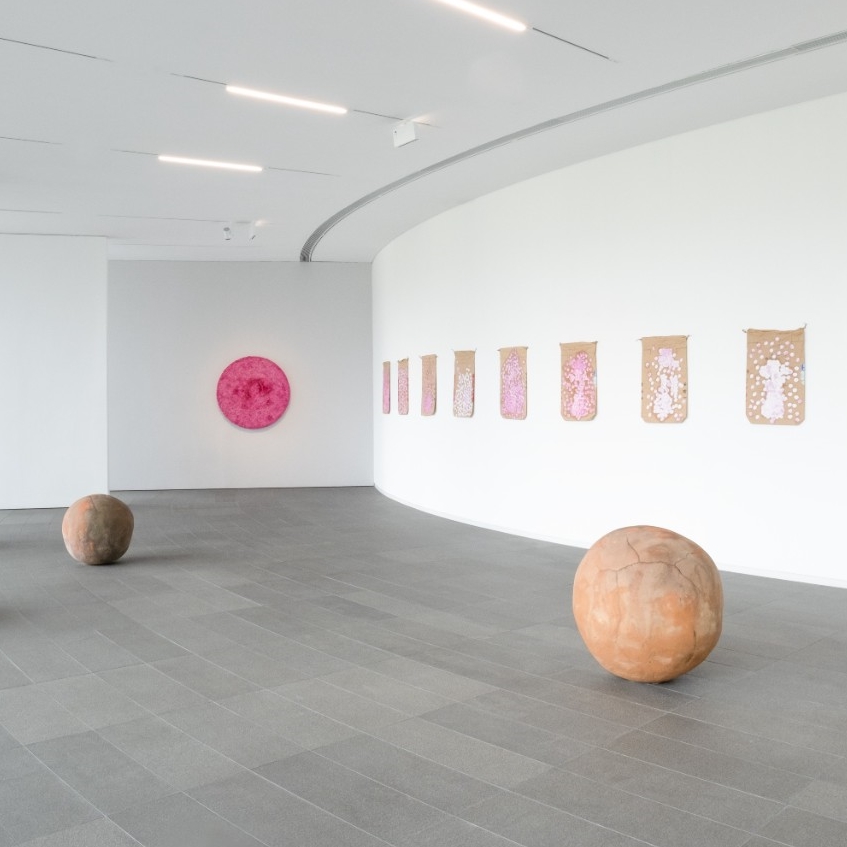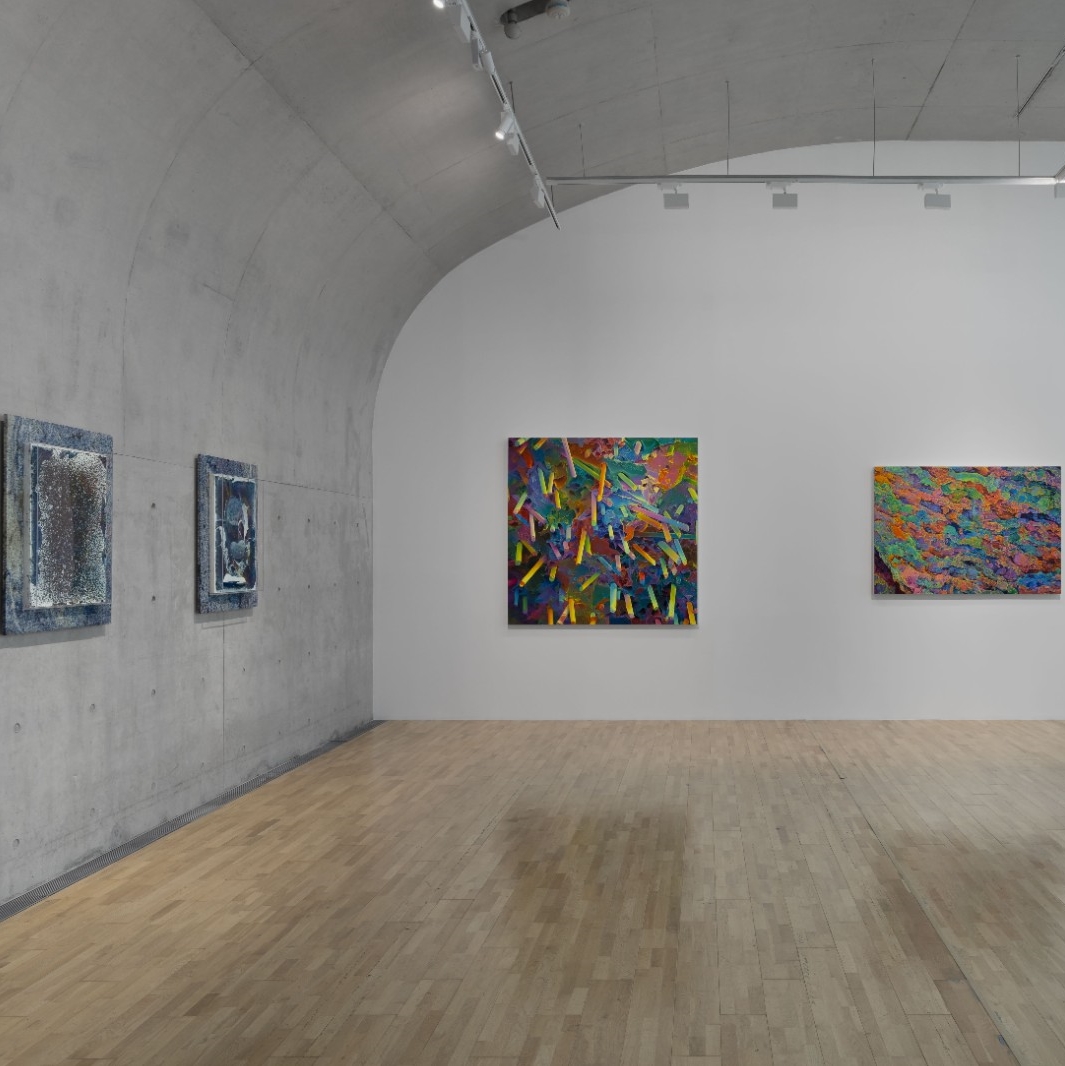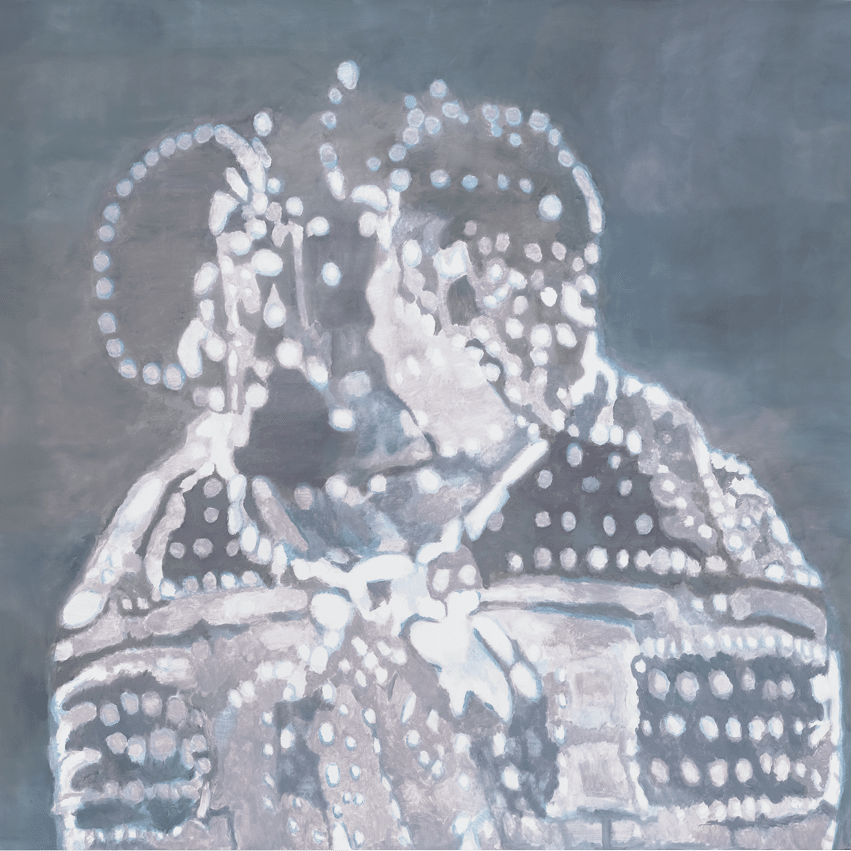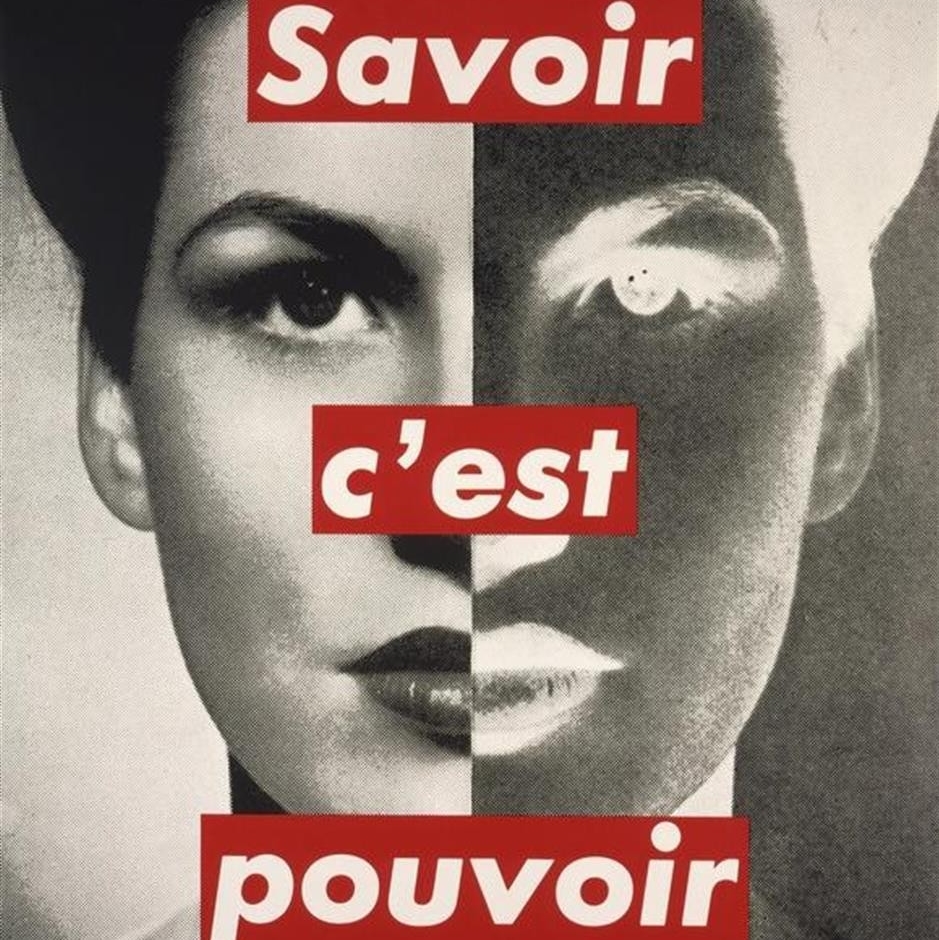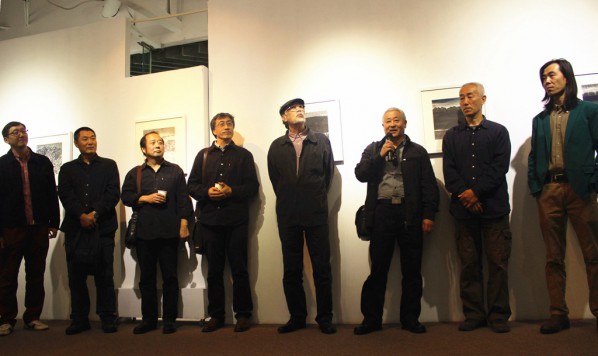
There is no doubt that Zhang Guilin has made great achievements and contributions to Chinese silkscreens, he was the first to build the silkscreens studio of CAFA. He said the new work is “ink and wash”, rather than “traditional Chinese painting”, and it reflects modesty and satisfaction. “The traditional Chinese painting” is different from the concept of “Chinese painting", on the one hand he respects the “traditional Chinese painting”, on the other hand he keeps a distance from the style of present “Chinese painting”.
“Ink and wash” has a different connotation, it is both a category and a material for paintings, it is amiable and relaxed, one will be relieved when seeing his paintings.
From Lin Fengmian to Huang Yongyu, Guang Jun, Zhang Guilin, they all consider ink and wash as a material for creations which is actually the liberation of ink painting. Whether it is “tradition” doesn’t depend on the tools of ink and wash, but the unique way to consider both the nature and life, with the Oriental philosophical meaning, the wisdom and spirit is the essence of traditional Chinese painting, rather than the skills of traditional Chinese painting such as drawing lines and dots, the wrinkle method, and dyeing.
Zhang Guilin is an artist of Chinese temperament, inheriting the invisible traditional spirit rather than the visible traditional techniques and style. He is open-minded, outright and direct, never escaping, he straight forwardly presents the key. He has hidden great wisdom and his painting is becoming more and more close to him, using a simple brush and ink to paint, it is very simple and direct, and more powerful, instead of affectation. He usually chooses a part of the object, violating the rules of composition, full of visual tension, reaching the end although the viewer is not satisfied.
His power comes from the simplicity, the Chinese meaning refers to the crude wood, of the original and natural beauty. He often treats painting as merely playing a game, avoiding a burden, working like a general who is not afraid of death, fighting in the battlefield, using colors, shapes, dots, lines as his soldiers, crisscross, cause a collision, blocking and folding is used freely. His paintings are intuitively flowing with musical rhythms, presenting the natural order, all things are natural.
He respects the natural state of brush and ink, looking for the law of arbitrary, in between the tangible and intangible, to draw by association following the condition, which is as non-repeatable as life!
Excerpts of “On Zhang Guilin’s Ink and Wash” by Cheng Xi
In Wangjing on September 26, 2015
About the artist
Born in Beijing in 1951, Zhang Guilin graduated from the Department of Printmaking, CAFA in 1978, and taught at the school after graduation for that year. From 1990 to 1991, he was invited to visit Europe as a visiting scholar by the Madrid Academy of Fine Arts. Currently he is a professor of CAFA, Director of the First Studio of the Department of Printmaking.
Since the 1980s, with a sharp feeling, Zhang Guilin has been involved in the introduction, study and creation of the silkscreens over the last century. Supported by Mr. Li Hua, Zhang first built the silkscreens studio, brought into the teaching of the print category. He did not only cultivate professional students for the studio, he also trained a batch of talented artists in the teaching and creation of silkscreens for other schools and groups.
About the exhibition
Curator: Cheng Xi
Academic Chair: Ma Zhiqiang
Opening Ceremony: October 10, 2015, 3:00 pm
Duration: October 10 - October 29, 2015
Venue: Gallery 1, Chengxi Center for Contemporary Art
Courtesy of the artist and Cheng Xi Center for Contemporary Art, translated by Chen Peihua and edited by Sue/CAFA ART INFO.


